
Arorangi: The Heartbeat of Rarotonga
Nestled on the western coast of Rarotonga, Arorangi is a quaint village that captures the essence of traditional Cook Islands life. As one of the oldest settlements on the island, Arorangi offers a unique blend of history, culture, and natural beauty. Stroll along its pristine beaches, where the golden sands meet crystal clear waters, perfect for swimming and snorkeling. The sunsets here are a spectacle, painting the sky in hues of orange and pink. Take a journey through time at the Arorangi Cook Islands Christian Church, one of the oldest churches on the island, built in 1849. Its coral limestone structure and graveyard tell stories of the island's past. Just a short walk away is the Highland Paradise Cultural Centre, where you can immerse yourself in the local culture through traditional dance performances and island feasts. For the adventure seekers, the nearby Black Rock offers excellent snorkeling opportunities, with vibrant marine life and fascinating underwater landscapes. Arorangi is also home to several local eateries where you can savor authentic Polynesian cuisine. Don’t miss out on the night markets, where you can mingle with locals and taste various delicacies under the starlit sky. Arorangi is not just a destination; it's an experience that lets you connect with the soul of Rarotonga. Whether you're a history buff, a beach lover, or a culture enthusiast, Arorangi has something special to offer everyone.
Local tips in Arorangi
- Visit the Arorangi Cook Islands Christian Church early in the morning to enjoy peace and solitude.
- Pack reef shoes for snorkeling at Black Rock to protect your feet from sharp corals.
- Experience local culture by attending the Highland Paradise cultural evening.
- Carry cash as some local vendors at the night markets may not accept credit cards.
- Rent a scooter to explore the area at your own pace and discover hidden gems.
Arorangi: The Heartbeat of Rarotonga
Nestled on the western coast of Rarotonga, Arorangi is a quaint village that captures the essence of traditional Cook Islands life. As one of the oldest settlements on the island, Arorangi offers a unique blend of history, culture, and natural beauty. Stroll along its pristine beaches, where the golden sands meet crystal clear waters, perfect for swimming and snorkeling. The sunsets here are a spectacle, painting the sky in hues of orange and pink. Take a journey through time at the Arorangi Cook Islands Christian Church, one of the oldest churches on the island, built in 1849. Its coral limestone structure and graveyard tell stories of the island's past. Just a short walk away is the Highland Paradise Cultural Centre, where you can immerse yourself in the local culture through traditional dance performances and island feasts. For the adventure seekers, the nearby Black Rock offers excellent snorkeling opportunities, with vibrant marine life and fascinating underwater landscapes. Arorangi is also home to several local eateries where you can savor authentic Polynesian cuisine. Don’t miss out on the night markets, where you can mingle with locals and taste various delicacies under the starlit sky. Arorangi is not just a destination; it's an experience that lets you connect with the soul of Rarotonga. Whether you're a history buff, a beach lover, or a culture enthusiast, Arorangi has something special to offer everyone.
When is the best time to go to Arorangi?
Iconic landmarks you can’t miss
Punanga Nui Market
Experience the essence of island life at Punanga Nui Market, where local flavors and crafts come together in a vibrant cultural celebration.
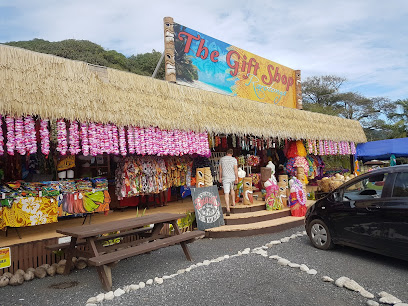
Muri Night Markets
Discover the vibrant flavors and culture of the Cook Islands at Muri Night Markets, a must-visit food court and tourist attraction in Ngatangiia District.
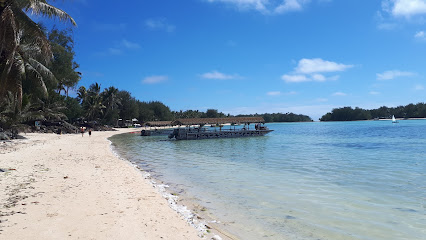
Beluga
Discover the vibrant flavors of Arorangi at Beluga Cafe, where every cup of coffee tells a story of the Cook Islands.
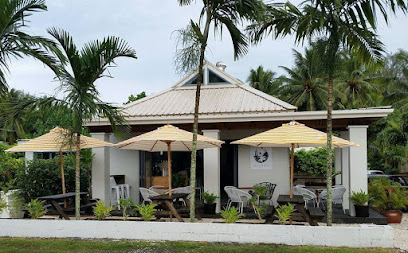
Te Vara Nui Village
Experience the rich cultural heritage of the Cook Islands at Te Vara Nui Village, where tradition meets breathtaking beauty.
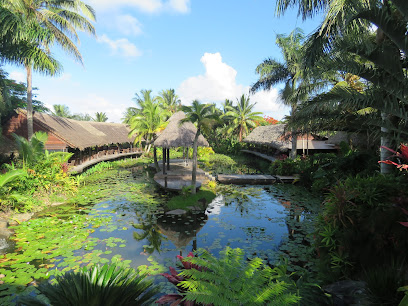
Maire Nui Gardens and Cafe
Explore the serene beauty of Maire Nui Gardens and Cafe in Rarotonga, where nature and fresh cuisine create a tranquil escape.
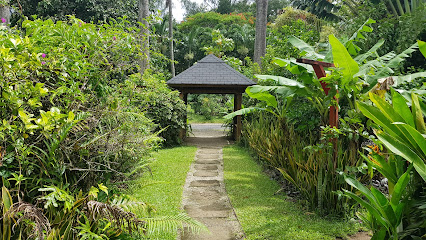
Crown Beach & Spa Resort Rarotonga
Experience unparalleled luxury and tranquility at Crown Beach & Spa Resort Rarotonga, your ultimate tropical getaway in the heart of the Cook Islands.

The Waterline Restaurant and Outrigger Beach Bar
Experience the best of Cook Islands cuisine at The Waterline Restaurant and Outrigger Beach Bar, where stunning ocean views meet exceptional flavors.
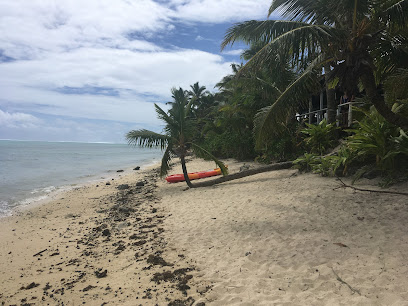
Shipwreck Hut Bar & Restaurant & Accomodation
Experience the vibrant flavors and rhythms of the Cook Islands at Shipwreck Hut Bar & Restaurant in Arorangi District.
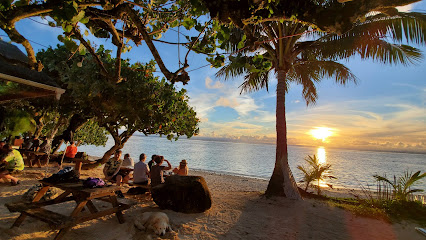
Flying Turtle Cafe
Experience the vibrant flavors and stunning views at Flying Turtle Cafe in Rarotonga, the perfect spot for tourists seeking local delicacies.
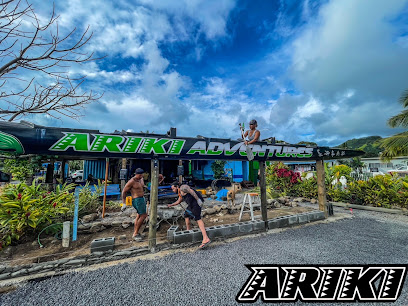
Sanctuary Rarotonga-On the Beach
Experience the ultimate tropical escape at Sanctuary Rarotonga-On the Beach, where luxury meets nature in the heart of the Cook Islands.

Kikau Hut
Experience the authentic taste of the Cook Islands at Kikau Hut, a culinary gem in Rarotonga's Arorangi District, where fresh local ingredients shine.
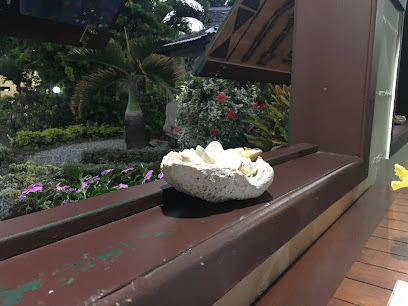
Lagoon Breeze Villas
Experience the ultimate tropical escape at Lagoon Breeze Villas in Arorangi, where luxury meets nature in the heart of the Cook Islands.

Te Ara Cook Islands Museum of Cultural Enterprise
Explore the vibrant heritage of the Cook Islands at Te Ara Cook Islands Museum of Cultural Enterprise, a must-visit for cultural enthusiasts.
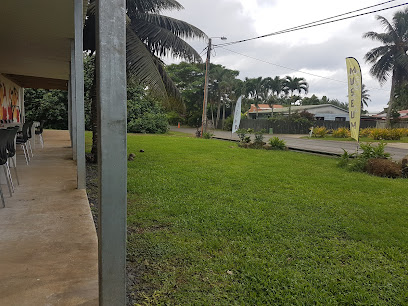
Te Rua Manga (The Needle)
Explore Te Rua Manga, The Needle, a breathtaking natural landmark in Rarotonga offering stunning views and unforgettable hiking adventures.
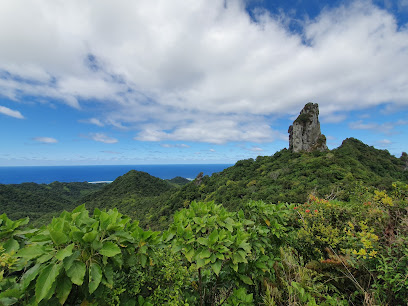
Wigmore's Waterfall
Discover the serene beauty of Wigmore's Waterfall, a picturesque swimming lake in the heart of the Cook Islands, perfect for relaxation and adventure.
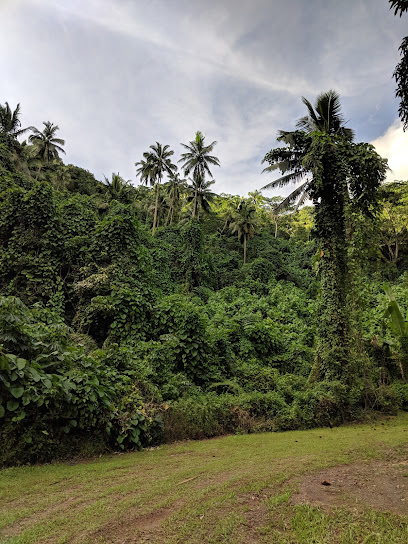
Unmissable attractions to see
Captain Tamas Lagoon Cruizes
Experience the magic of Muri Beach: turquoise waters, white sands, and endless lagoon adventures in Rarotonga's tropical paradise.
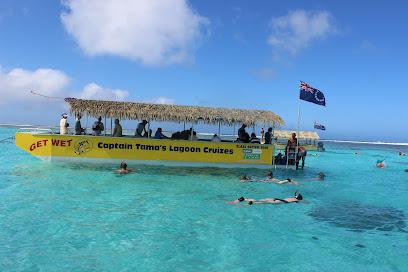
Rarotonga
Discover the breathtaking landscapes, rich culture, and warm hospitality of Rarotonga, the jewel of the Cook Islands, perfect for relaxation and adventure.
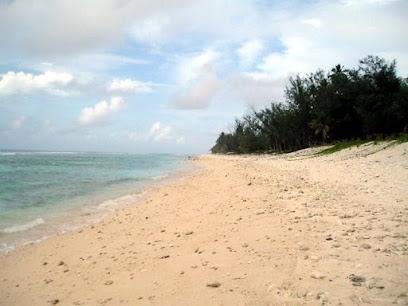
Maire Nui Gardens and Cafe
Discover Rarotonga's hidden gem: a lush botanical garden with vibrant flora, tranquil lily ponds, and a delightful garden-to-table café experience.
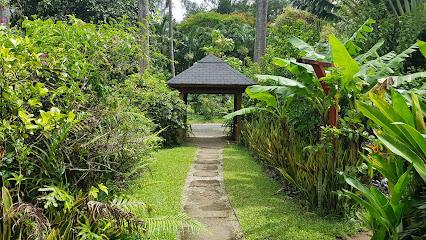
Shipwreck Hut Bar & Restaurant & Accomodation
Discover the vibrant atmosphere of Shipwreck Hut Bar & Restaurant in Arorangi, where delicious cuisine meets live music and stunning views.
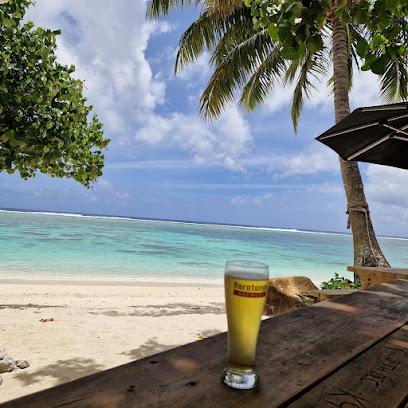
Te Ara Cook Islands Museum of Cultural Enterprise
Discover Cook Islands' history and culture at Te Ara Museum near Muri Beach. Engaging exhibits, local crafts, and cultural insights await!
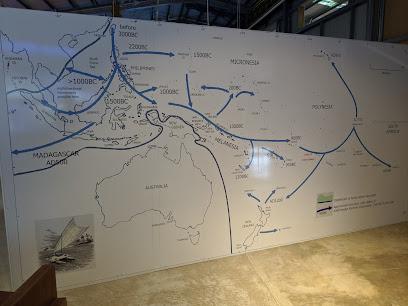
Ariki Adventures
Experience Rarotonga's underwater wonders with Ariki Adventures' guided sea scooter tours, offering unforgettable encounters with turtles and marine life.
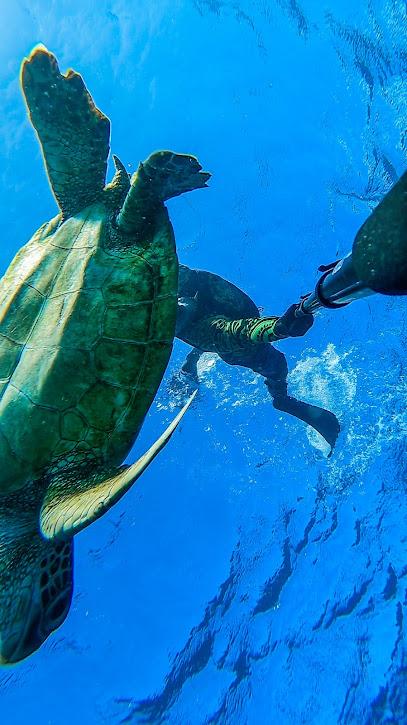
Te Rua Manga (The Needle)
Discover the breathtaking beauty of Te Rua Manga, an iconic natural landmark in Avarua, Cook Islands, ideal for adventurers and nature lovers.
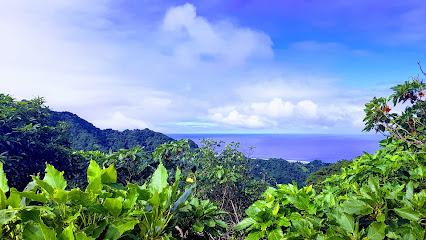
Muri Beach
Experience the allure of Muri Beach, Rarotonga: turquoise waters, white sands, thrilling water sports, and vibrant island culture await!
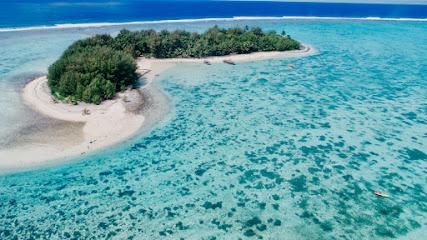
Raro Reef Sub
Explore the vibrant marine life and historic shipwrecks of Avarua with Raro Reef Sub, the ultimate underwater adventure in the Cook Islands.
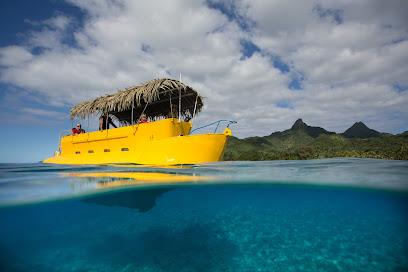
Cook Islands Library & Museum
Discover the vibrant culture and history of the Cook Islands at the Cook Islands Library & Museum in Avarua, a treasure trove of artifacts and stories.
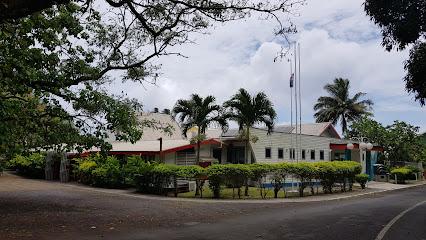
Arorangi CICC Church
Experience the serene beauty and cultural significance of Arorangi CICC Church, a peaceful retreat in the heart of the Cook Islands.
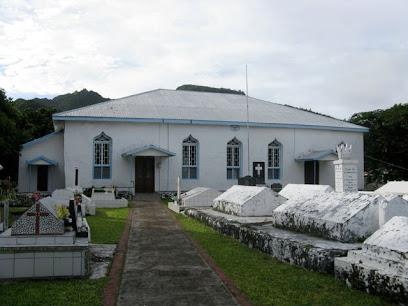
Muri Lagoon
Discover Rarotonga's Muri Lagoon: turquoise waters, idyllic islets, and endless adventures await in this South Pacific paradise.
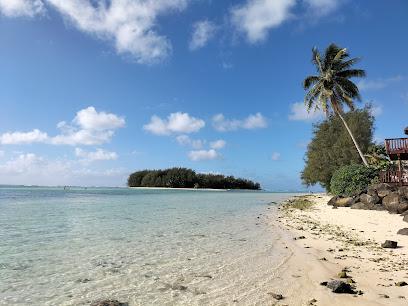
Cook Islands Tours
Discover the beauty and culture of the Cook Islands with personalized tours that showcase nature, adventure, and local traditions.
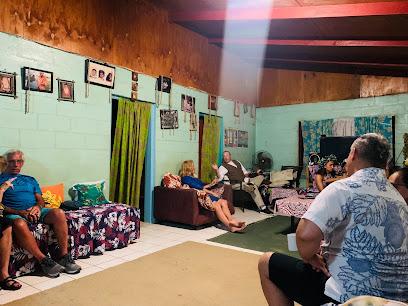
Taputapuatea
Explore Taputapuatea in Avarua, a sacred UNESCO World Heritage site, and uncover the rich cultural heritage of the Cook Islands.
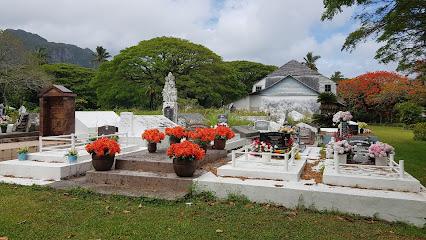
Essential places to dine
Trader Jacks
Discover delicious grill cuisine and vibrant nightlife at Trader Jacks in Avarua – where every meal is an experience.
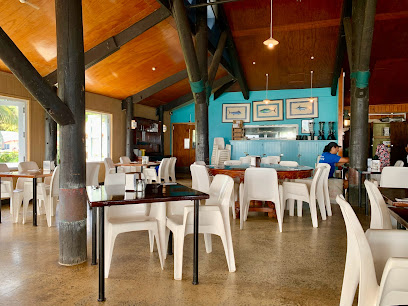
Charlie's Raro
Experience vibrant flavors and breathtaking views at Charlie's Raro – a top dining destination in Takitumu District, Rarotonga.
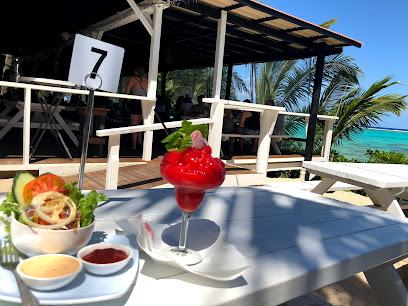
The Mooring Fish Cafe
Discover the ultimate fish and chips experience at The Mooring Fish Cafe in Ngatangiia District—where fresh seafood meets stunning tropical views.
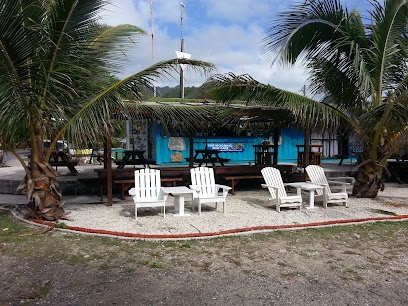
Tamarind House Restaurant & Ukulele Bar
Experience exquisite dining at Tamarind House Restaurant & Ukulele Bar in Rarotonga – where local flavors meet live music in a tropical paradise.
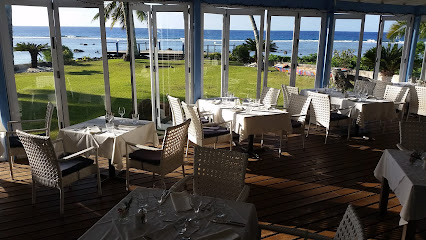
Vaima Restaurant and Bar
Experience exquisite local flavors at Vaima Restaurant and Bar, where stunning views meet authentic Cook Islands cuisine.
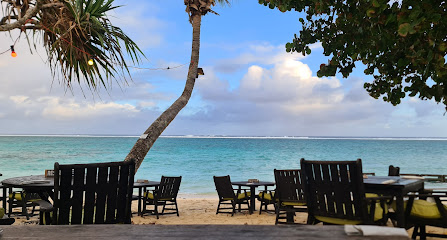
The Waterline Restaurant and Outrigger Beach Bar
Experience breathtaking ocean views and savor authentic Polynesian cuisine at The Waterline Restaurant and Outrigger Beach Bar in Rarotonga.
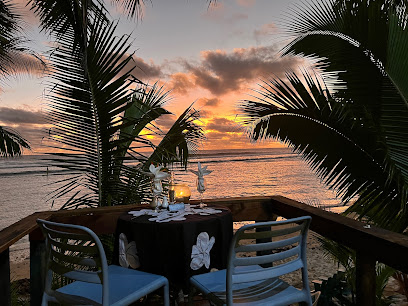
Antipodes rarotonga
Discover Antipodes Rarotonga: A culinary haven in Avarua blending local flavors with stunning island views.
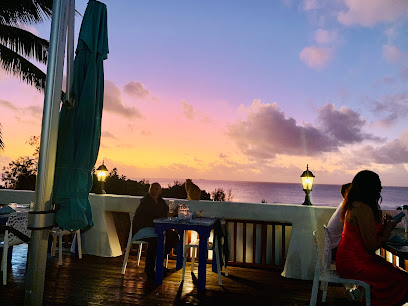
Palace Takeaways
Discover authentic local flavors at Palace Takeaways in Avarua – where fresh ingredients meet delicious takeout options.
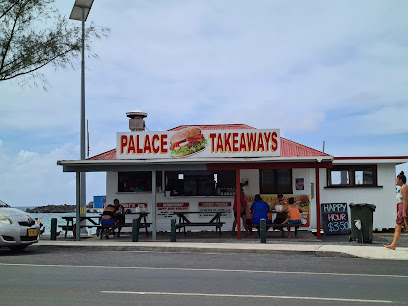
Castaway Resort Rarotonga
Experience blissful relaxation at Castaway Resort Rarotonga with stunning beaches, exquisite dining options, and vibrant local culture.

Shipwreck Hut Bar & Restaurant & Accomodation
Discover delightful grilled dishes and live music at Shipwreck Hut Bar & Restaurant in Arorangi District – your ultimate island dining experience.
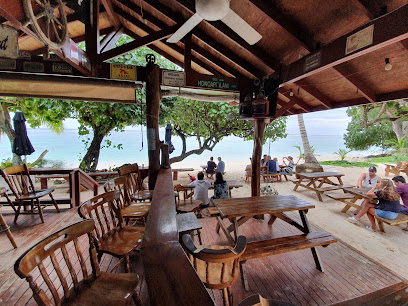
Spaghetti House Restaurant
Experience the best of Italian cuisine amidst breathtaking views at Spaghetti House Restaurant in Arorangi District.
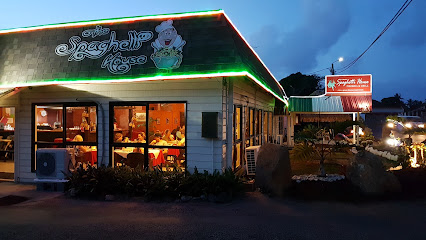
Flying Turtle Cafe
Discover culinary bliss at Flying Turtle Cafe in Rarotonga - where fresh local flavors meet a vibrant atmosphere amidst tropical beauty.

Kikau Hut
Experience authentic South Pacific cuisine at Kikau Hut in Rarotonga - where every dish tells a story.
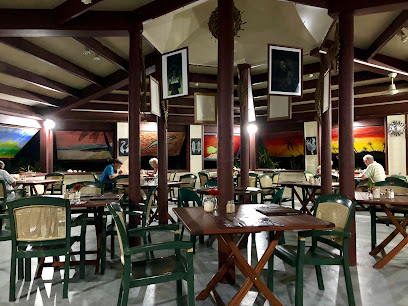
On the Beach Bar and Restaurant
Experience exquisite dining at On the Beach Bar and Restaurant, where stunning ocean views meet delicious local cuisine in Arorangi District.
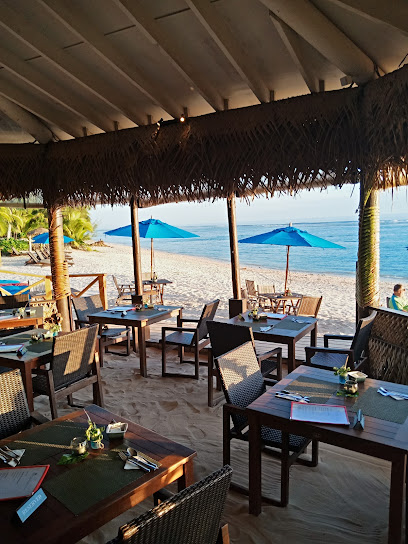
The Pacific Fish & Chip Shop
Experience the best fish and chips in Arorangi District at The Pacific Fish & Chip Shop - where fresh flavors meet stunning coastal views.
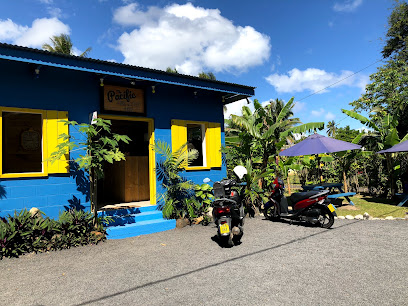
Markets, malls and hidden boutiques
Punanga Nui Market
Discover the lively Punanga Nui Market in Rarotonga, where fresh produce, local crafts, and a vibrant atmosphere await every visitor.
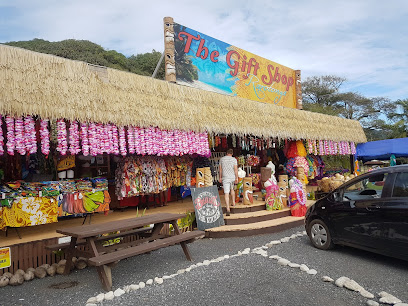
Beluga
Experience the perfect blend of local culture and exceptional coffee at Beluga in Arorangi District, a must-visit cafe for every traveler.
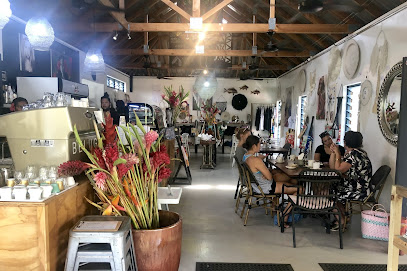
Wigmore's Superstore
Discover the essence of local shopping at Wigmore's Superstore, offering fresh produce, unique souvenirs, and a taste of island life in Takitumu District.
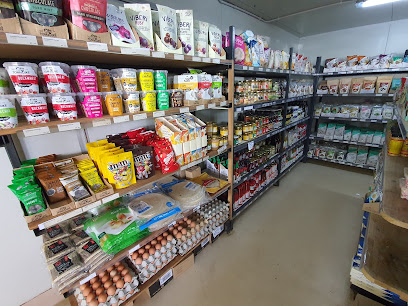
Avarua Shopping Centre
Discover the charm of Avarua Shopping Centre, where local culture meets unique shopping and delicious dining in the heart of the Cook Islands.
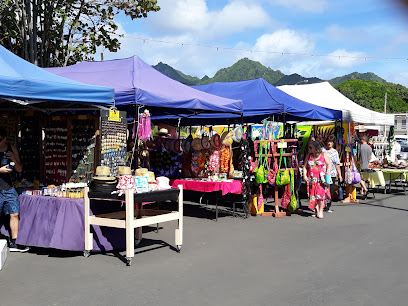
Adventure Cook Islands Ltd
Discover the underwater wonders and scenic beauty of Rarotonga with Adventure Cook Islands Ltd, your ultimate adventure partner.
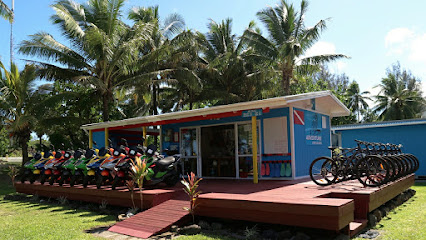
RAROTONGA BREWERY
Experience the authentic flavors of Rarotonga at Rarotonga Brewery, where local craft beers meet island hospitality in a vibrant setting.

Prime Foods Ltd
Discover the flavors of the Cook Islands at Prime Foods Ltd, where local produce meets unique culinary experiences.

Ollie's Surf Gear
Discover the best in surfwear at Ollie's Surf Gear, where island style meets quality and adventure awaits.
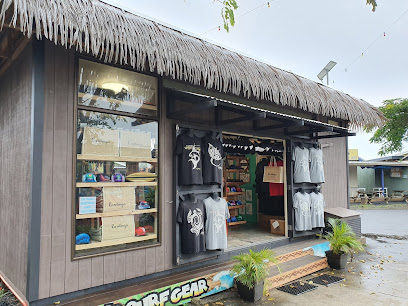
Island Craft Ltd
Discover exquisite local crafts and vibrant souvenirs at Island Craft Ltd, the perfect gift shop in Avarua for visitors to the Cook Islands.
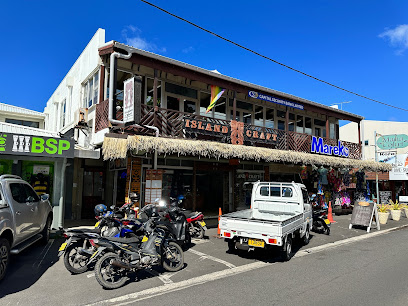
The T-Shirt Factory
Explore unique local designs at The T-Shirt Factory in Avarua, the ultimate destination for authentic Cook Islands souvenirs.
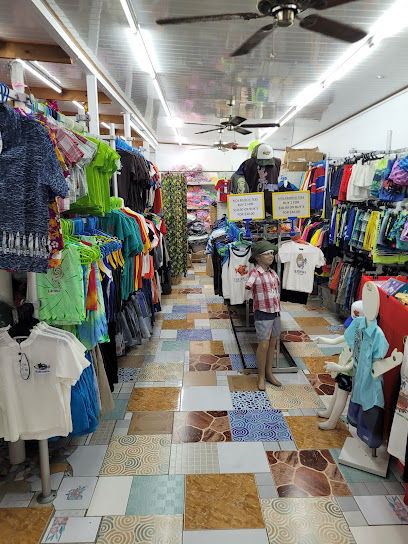
Cooks Fudge Factory/ Perfumes of Rarotonga
Discover the sweetness of Rarotonga at Cooks Fudge Factory, where gourmet chocolates, artisan perfumes, and unique gifts await.
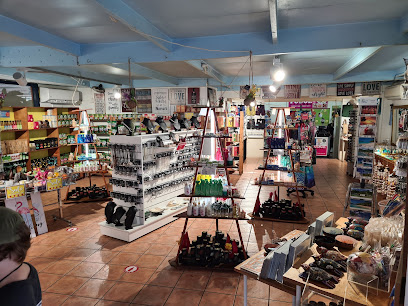
Brews and Scoops
Experience the rich flavors of artisanal coffee and delightful ice creams at Brews and Scoops, Avarua's favorite coffee shop.
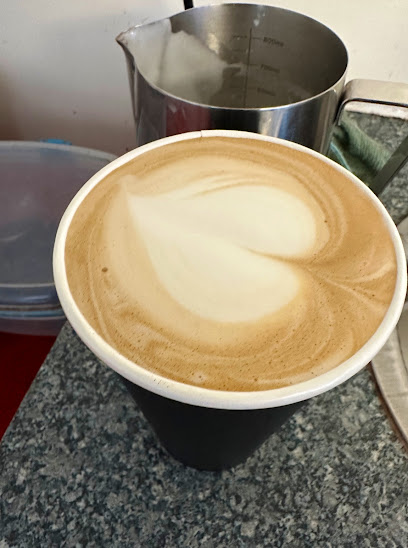
Gus and Sophies' Pearl Lounge
Explore the exquisite pearl jewelry of Gus and Sophies' Pearl Lounge in Arorangi District, where tradition meets elegance in every piece.
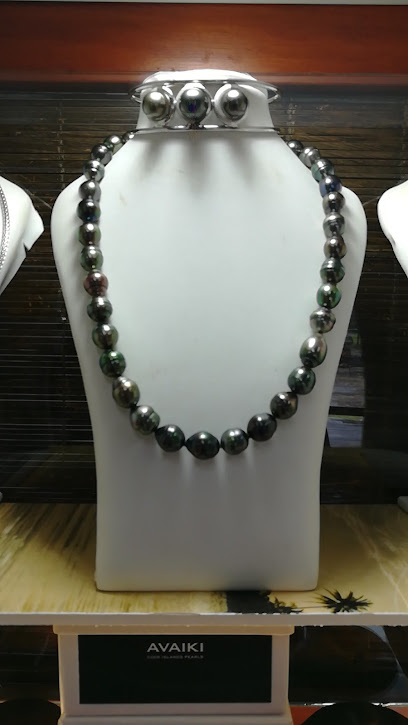
Perfumes of Rarotonga Factory
Explore the enchanting fragrances of Rarotonga at the Perfumes of Rarotonga Factory—where island scents come to life.
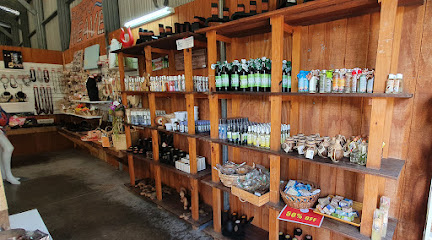
Vonnias Warehouse
Explore Vonnias Warehouse: Your gateway to unique local crafts, delicious treats, and an authentic shopping experience in Avarua.
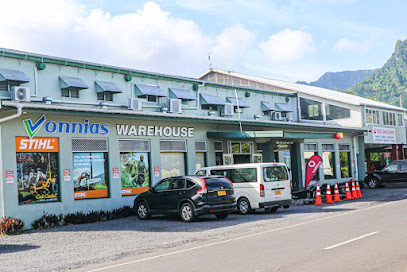
Essential bars & hidden hideouts
Vaima Restaurant and Bar
Discover the culinary delights of Vaima Restaurant and Bar, where stunning views meet exquisite local flavors in the heart of the Cook Islands.
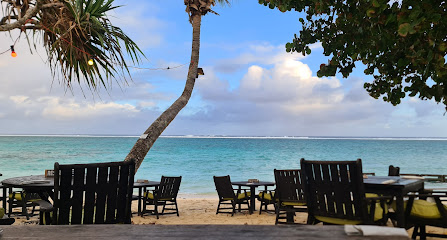
21.3 Vaiana's Bar & Bistro
Experience the fusion of flavorful dishes and refreshing drinks at Vaiana's Bar & Bistro, the ultimate beachside retreat in Avarua.
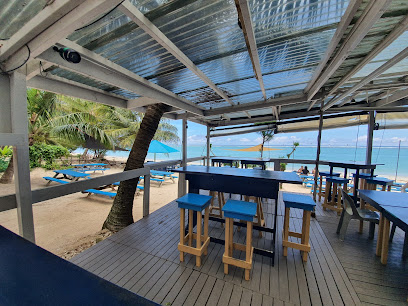
The Waterline Restaurant and Outrigger Beach Bar
Experience exquisite dining and breathtaking views at The Waterline Restaurant and Outrigger Beach Bar in Rarotonga.
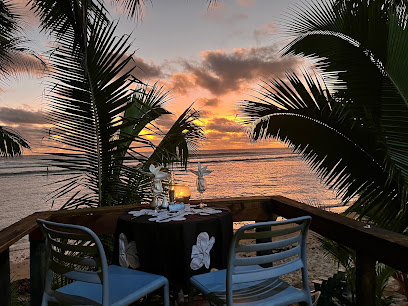
Antipodes rarotonga
Experience the flavors of Rarotonga at Antipodes Rarotonga, where local ingredients meet culinary creativity in a warm dining atmosphere.
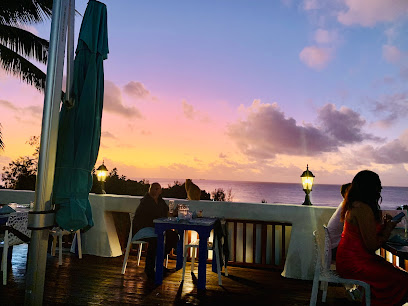
Castaway Resort Rarotonga
Discover tranquility and adventure at Castaway Resort Rarotonga, your perfect tropical getaway in the heart of the Cook Islands.

Shipwreck Hut Bar & Restaurant & Accomodation
Discover the vibrant flavors and lively atmosphere at Shipwreck Hut Bar & Restaurant in Arorangi District, a perfect blend of local cuisine and live music.
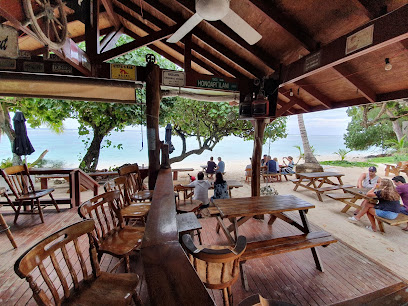
Kikau Hut
Experience the authentic flavors of the Cook Islands with stunning ocean views at Kikau Hut in Rarotonga, a culinary gem for travelers.
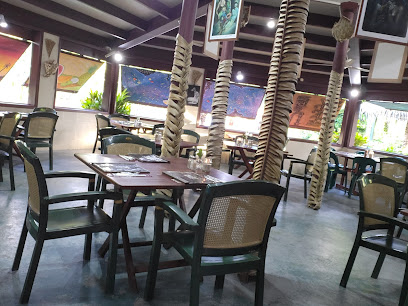
On the Beach Bar and Restaurant
Experience the taste of the Cook Islands at On the Beach Bar and Restaurant, where fresh flavors meet stunning ocean views.
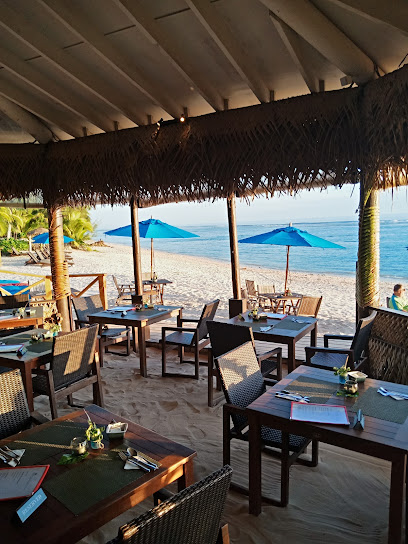
Wilsons Bar & Restaurant
Discover the culinary delights and breathtaking views at Wilsons Bar & Restaurant in the heart of Arorangi District.
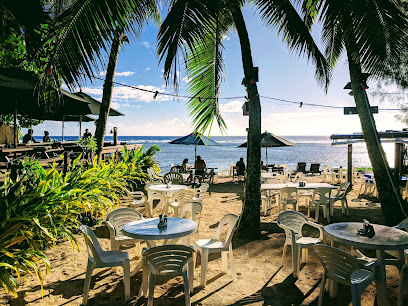
Alberto's Steakhouse and Bar
Experience the best steaks in Arorangi District at Alberto's Steakhouse and Bar, where flavor meets local charm.
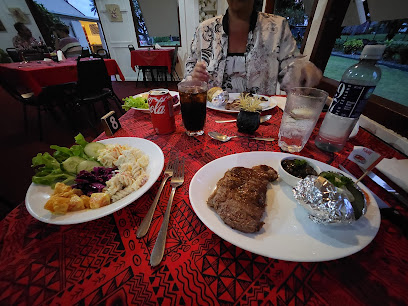
Restaurant & Mal's Bar
Experience the best of local flavors and breathtaking views at Restaurant & Mal's Bar in Arorangi District.
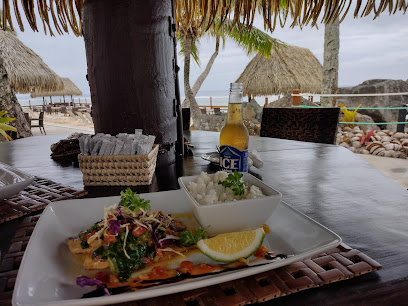
Tumunu Bar and Restaurant
Discover Tumunu Bar and Restaurant in Arorangi District for a delightful culinary journey infused with local flavors and a vibrant island ambiance.
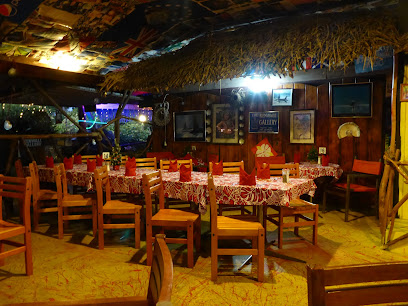
Captain Andy's Beach Bar & Grill
Experience the flavors of the tropics at Captain Andy's Beach Bar & Grill, a must-visit dining spot in the heart of the Cook Islands.
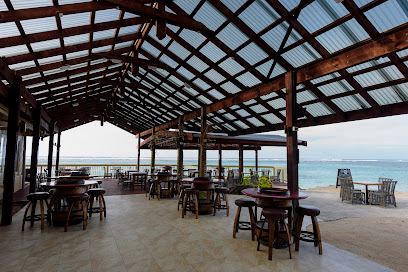
COCOCKTAIL
Experience delicious cuisine and refreshing cocktails at Cococktail, nestled in the stunning Black Rock Arorangi of Rarotonga.
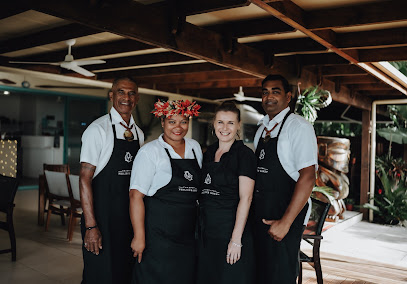
Roadhouse Bar & Restaurant
Indulge in the vibrant flavors and lively entertainment at Roadhouse Bar & Restaurant in Arorangi District, a must-visit for tourists seeking fun.
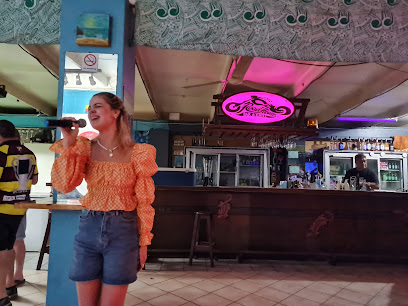
Local Phrases
-
- HelloKia Orana
[key-ah oh-rah-nah] - GoodbyeAere ra
[eye-ree rah] - YesAe
[eye] - NoKare
[kah-reh] - Please/You're welcomeMeitaki
[may-tah-kee] - Thank youMeitaki
[may-tah-kee] - Excuse me/SorryTatau
[tah-tow] - How are you?Pehea koe?
[peh-heh-ah koh-eh] - Fine. And you?Maitai. E koe?
[my-tie. eh koh-eh] - Do you speak English?E koe e akakite i te reo Ingarangi?
[eh koh-eh eh ah-kah-kee-teh ee teh reh-oh een-gah-rahng-ee] - I don't understandKare au e manako
[kah-reh ow eh mah-nah-koh]
- HelloKia Orana
-
- I'd like to see the menu, pleaseKa kite au i te meniu, meitaki
[kah kee-teh ow ee teh meh-nee-oo, may-tah-kee] - I don't eat meatKare au e kai i te kai
[kah-reh ow eh kai ee teh kai] - Cheers!Manuia!
[mah-noo-yah] - I would like to pay, pleaseKa tuku au i te moni, meitaki
[kah too-koo ow ee teh moh-nee, may-tah-kee]
- I'd like to see the menu, pleaseKa kite au i te meniu, meitaki
-
- Help!Aue!
[ow-eh] - Go away!Taku haere atu!
[tah-koo high-reh ah-too] - Call the Police!Piri koe ki te Purata
[pee-ree koh-eh kee teh poo-rah-tah] - Call a doctor!Piri koe ki te Rata
[pee-ree koh-eh kee teh rah-tah] - I'm lostKua ngaro au
[koo-ah ngah-roh ow] - I'm illKua mate au
[koo-ah mah-teh ow]
- Help!Aue!
-
- I'd like to buy...Ka oronga au...
[kah oh-ron-gah ow] - I'm just lookingTaku kiteanga no te mea
[tah-koo kee-teh-ah-ngah no teh meh-ah] - How much is it?E hia tenei?
[eh hee-ah teh-neh-ee] - That's too expensiveTei rahi te moni
[teh rah-hee teh moh-nee] - Can you lower the price?E aore koe e tuku i te moni?
[eh ow-reh koh-eh eh too-koo ee teh moh-nee]
- I'd like to buy...Ka oronga au...
-
- What time is it?Kia aha te wa?
[key-ah ah-hah teh wah] - It's one o'clockE tahi te wa
[eh tah-hee teh wah] - Half past (10)E toru nui
[eh toh-roo noo-ee] - MorningTe ata
[teh ah-tah] - AfternoonTe aiai
[teh eye-eye] - EveningTe po
[teh poh] - YesterdayI raro ake nei
[ee rah-roh ah-keh neh-ee] - TodayI tenei ra
[ee teh-neh-ee rah] - TomorrowApopo
[ah-poh-poh] - 1Tahi
[tah-hee] - 2Rua
[roo-ah] - 3Toru
[toh-roo] - 4Apati
[ah-pah-tee] - 5Rima
[ree-mah] - 6Ono
[oh-no] - 7Fitu
[fee-too] - 8Varu
[vah-roo] - 9Iva
[ee-vah] - 10Ngauru
[ngah-oo-roo]
- What time is it?Kia aha te wa?
-
- Where's a/the...?Kei whea te...?
[keh-ee feh-ah teh] - What's the address?Ko wai te tuuru?
[koh why teh too-roo] - Can you show me (on the map)?E taea e koe te whakaatu mai i ahau (i te mahere)?
[eh tah-eh-ah eh koh-eh teh fah-kah-ah-too my ee ah-how (ee teh mah-heh-reh)] - When's the next (bus)?Ka aha te reira (pahi)?
[kah ah-hah teh reh-ee-rah pah-hee] - A ticket (to ....)He tikiti (ki ....)
[heh te-kee-tee kee]
- Where's a/the...?Kei whea te...?
History of Arorangi
-
Arorangi, located on the western side of Rarotonga in the Cook Islands, has ancient roots tracing back to Polynesian navigators who first settled in the area around 800 AD. These early settlers established villages and communal structures, creating a vibrant society that thrived on fishing, agriculture, and inter-island trade. The fertile land and strategic coastal location made Arorangi an essential hub for the island’s inhabitants.
-
In the early 19th century, European missionaries, particularly from the London Missionary Society, began to arrive in the Cook Islands. In 1823, John Williams, a prominent missionary, established the first mission in Arorangi. The introduction of Christianity brought significant changes to the local culture and social structure. Traditional beliefs and practices were gradually replaced by Christian doctrines, leading to the construction of churches and schools. The Arorangi Cook Islands Christian Church, built in 1849, stands as a testament to this transformative period.
-
The Cook Islands became a British protectorate in 1888, and in 1901, they were annexed by New Zealand. Arorangi, like the rest of Rarotonga, experienced various colonial influences during this period. The introduction of Western governance, education, and infrastructure development marked a new era for the community. Despite these changes, the people of Arorangi retained their rich Polynesian heritage, blending it with new influences to create a unique cultural identity.
-
During World War II, the Cook Islands, including Arorangi, played a strategic role in the Pacific Theater. The islands served as a transit and communication point for Allied forces. While the direct impact on Arorangi was limited, the war brought about economic and social changes. Post-war, many Cook Islanders, including those from Arorangi, migrated to New Zealand and Australia, seeking better opportunities. This migration led to a diaspora that continues to influence Arorangi's cultural landscape today.
-
In the latter half of the 20th century, Arorangi began to develop as a key tourist destination. With its pristine beaches, lush landscapes, and cultural heritage, it attracted visitors from around the world. Investments in tourism infrastructure, such as resorts, restaurants, and cultural centers, transformed Arorangi into a vibrant locale for both residents and visitors. Traditional crafts, dance, and music became central to the tourism experience, showcasing the enduring cultural legacy of the area.
-
Arorangi is renowned for its vibrant cultural festivals and traditions, which are celebrated with great enthusiasm by the local community. Events such as Te Maeva Nui, the annual celebration of Cook Islands' independence, feature traditional dance performances, music, and feasts. These festivals provide a unique opportunity for visitors to immerse themselves in the local culture and witness the rich tapestry of Arorangi's heritage. The continued practice of traditional arts, crafts, and ceremonies ensures that the cultural identity of Arorangi remains alive and well.
Arorangi Essentials
-
Arorangi is located on the western side of Rarotonga, the largest of the Cook Islands. The primary gateway to the Cook Islands is Rarotonga International Airport (RAR), which is well connected with flights from New Zealand, Australia, and other Pacific islands. From the airport, Arorangi is just a short 15-minute drive. Taxis and rental cars are available at the airport for convenience.
-
Getting around Arorangi is straightforward. The island has a reliable bus service that circles the island in both clockwise and counter-clockwise directions, making it easy to reach Arorangi from any point on Rarotonga. Taxis are also available but can be more expensive. Renting a scooter or a car is another popular option, providing flexibility to explore at your own pace.
-
The official currency in the Cook Islands is the New Zealand Dollar (NZD). Credit cards are widely accepted in hotels, restaurants, and shops, but it's advisable to carry some cash for smaller purchases and in case of technical issues with card machines. ATMs are available, though they can be limited in number, so it’s wise to withdraw sufficient cash beforehand.
-
Arorangi is generally a safe destination for tourists. Crime rates are low, but standard travel precautions should be taken. Avoid leaving valuables unattended, especially on the beach. There are no specific high-crime areas targeting tourists, but it's always best to stay vigilant and aware of your surroundings, especially at night.
-
In case of emergency, dial 999 for immediate assistance. Arorangi has a local police station and medical facilities available. For medical emergencies, Rarotonga Hospital is the main healthcare provider on the island. It is recommended to have travel insurance that covers medical emergencies. Pharmacies are also available for minor health issues.
-
Fashion: Do dress modestly, particularly when visiting villages and churches. Swimwear is appropriate at the beach but should not be worn in public areas. Religion: Do respect local customs and traditions. Remove your shoes before entering homes and churches. Public Transport: Do be respectful and greet the bus driver. Don't eat or drink on public transport. Greetings: Do greet locals with a warm 'Kia Orana,' which means 'may you live a long life.' Eating & Drinking: Do try local dishes and accept food offerings graciously. Don't refuse hospitality as it is considered impolite.
-
To experience Arorangi like a local, visit the Saturday village market where you can buy fresh produce and handmade crafts. Engage with locals, who are often friendly and welcoming. Don’t miss the sunset at Black Rock, a popular spot among locals. For an authentic experience, participate in a traditional Cook Islands dance show, which often takes place in the evenings.
Trending Landmark in Arorangi
-
Punanga Nui Market
-
Muri Night Markets
-
Beluga
-
Te Vara Nui Village
-
Maire Nui Gardens and Cafe
-
Crown Beach & Spa Resort Rarotonga
-
The Waterline Restaurant and Outrigger Beach Bar
-
Shipwreck Hut Bar & Restaurant & Accomodation
-
Flying Turtle Cafe
-
Sanctuary Rarotonga-On the Beach
-
Kikau Hut
-
Lagoon Breeze Villas
-
Te Ara Cook Islands Museum of Cultural Enterprise
-
Te Rua Manga (The Needle)
-
Wigmore's Waterfall
Nearby Cities to Arorangi
-
Things To Do in Avatiu
-
Things To Do in Nikao
-
Things To Do in Avarua
-
Things To Do in Takitumu
-
Things To Do in Matavera
-
Things To Do in Ngatangiia
-
Things To Do in Muri
-
Things To Do in Maupiti
-
Things To Do in Bora Bora
-
Things To Do in Raiatea
-
Things To Do in Huahine
-
Things To Do in Moorea
-
Things To Do in Papeete
-
Things To Do in Tahiti
-
Things To Do in Tetiaroa





